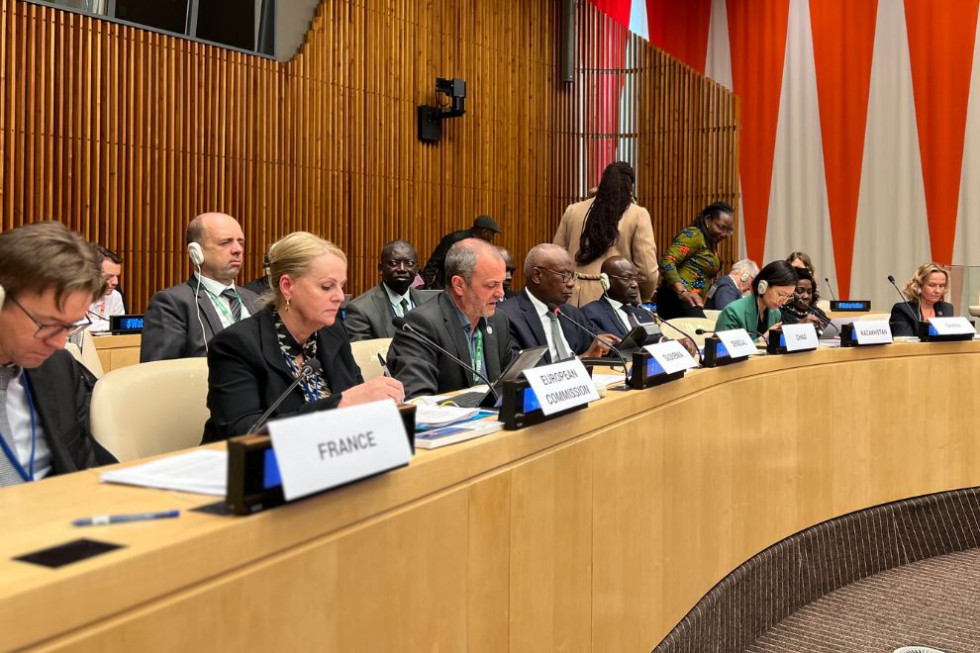Conclusions of the United Nations Water Conference
In a discussion on transboundary water and cross-sectoral cooperation, Minister of Natural Resources and Spatial Planning Uroš Brežan presented the well-developed tradition of transboundary water cooperation at all levels, as well as modern approaches to inclusive cross-sectoral action, and highlighted the International Sava River Basin Commission as an example of internationally recognised good practice.
In the context of the discussion on water as a key factor for adaptation and resilience to climate change, Minister Brežan highlighted the triple planetary crisis of climate, biodiversity and pollution. The management, protection and restoration of water and water-related ecosystems are a prerequisite for successfully curbing the triple crisis. Slovenia offered to share knowledge and rich experience in the field of transboundary water cooperation and climate change adaptation.
On behalf of Slovenia, as a country with a well-developed tradition of transboundary water cooperation and as one of the core countries, in cooperation with the Secretariat of the Water Convention, the Ministry of Natural Resources and Spatial Planning organised a side event to promote the international Transboundary Water Cooperation Coalition. The Coalition brings together 42 like-minded countries and organisations to help develop transboundary water cooperation as a contribution to peace and stability in the world.
The Ministry of Natural Resources and Spatial Planning also participated in a side event on the Water Convention, currently chaired by Estonia. It presented views on the development of the Convention and the forthcoming Slovenian chairmanship of the Convention for the period 2024–2027.
An important outcome document of the UN Water Conference is the Water Action Agenda, which to date brings together 689 commitments by countries, organisations, institutions and NGOs from around the world on activities that will contribute to accelerating the implementation of Goal 6 of the United Nations (UN) 2030 Agenda. Slovenia contributed two commitments related to transboundary cooperation and adaptation to climate change. At the same time, it also committed to joint activities under EU commitments and to a few other commitments from international alliances.
The conference concluded with a summary of the three days of work. The main highlights and conclusions of the conference are as follows:
- preparation of national integrated water and climate policies by 2030;
- development of a global water information system;
- development of early warning systems for extreme water events;
- redefinition of financing policies and the development of new economic models to achieve sustainable development goals in the water sector;
- establishment of a global water education network to help developing countries;
- development and enforcement of transboundary water cooperation agreements;
- redefinition of the UN institutional framework on water, including the appointment of a UN Special Envoy on Water and an independent UN Scientific Panel on Water;
- intergovernmental meeting in 2025 to review the implementation of national commitments to the Water Action Agenda.


